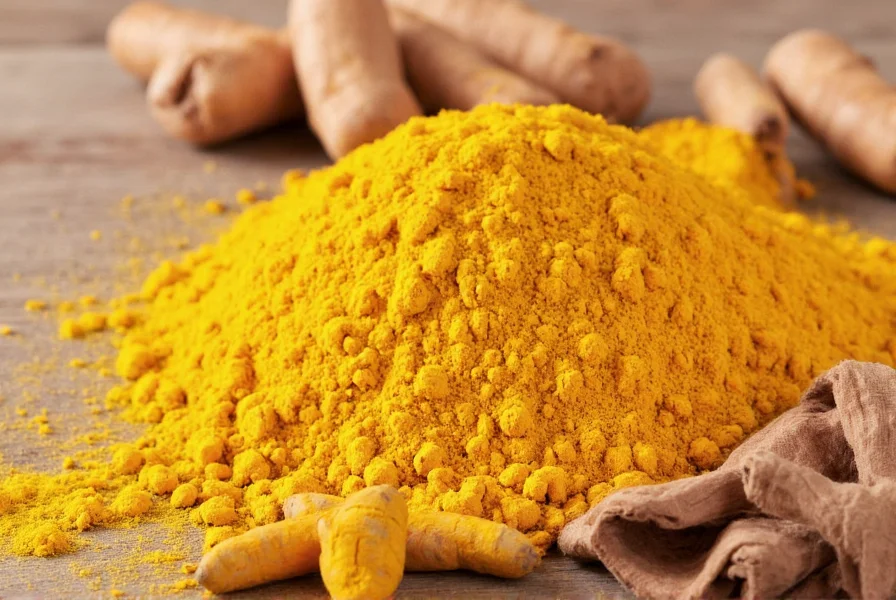Turmeric may worsen GERD symptoms for many people despite its anti-inflammatory benefits. Research shows curcumin, turmeric's active compound, can stimulate gastric acid production and relax the lower esophageal sphincter, potentially triggering heartburn and reflux. Those with GERD should consult a healthcare provider before using turmeric supplements and consider limiting dietary turmeric if symptoms worsen.
Turmeric, a vibrant yellow spice commonly used in curry dishes and traditional medicine, has gained popularity for its potential health benefits. However, for the estimated 20% of Americans experiencing gastroesophageal reflux disease (GERD), understanding the relationship between turmeric and acid reflux is crucial for managing symptoms effectively. GERD occurs when stomach acid frequently flows back into the tube connecting your mouth and stomach (esophagus). This backwash (acid reflux) can irritate the lining of your esophagus and cause uncomfortable symptoms like heartburn, regurgitation, and chest pain. When considering natural remedies for GERD, it's essential to evaluate both potential benefits and risks of substances like turmeric.
Understanding Turmeric's Dual Effects on Digestion
Turmeric contains curcumin, a compound with well-documented anti-inflammatory and antioxidant properties. Some research suggests curcumin might help reduce inflammation throughout the digestive tract. However, multiple studies indicate turmeric may also stimulate gastric acid secretion and relax the lower esophageal sphincter (LES) - the muscular valve that prevents stomach contents from flowing back into the esophagus. A 2019 review published in Nutrients examined various dietary factors affecting GERD symptoms. The researchers noted that while turmeric shows promise for general digestive health, its potential to increase gastric acid production makes it problematic for many GERD patients. This dual nature explains why some people report symptom relief while others experience significant worsening of heartburn after consuming turmeric.Scientific Evidence on Turmeric and GERD
Current research presents a complex picture regarding turmeric's effects on GERD:| Study | Findings Related to GERD | Limitations |
|---|---|---|
| 2021 Clinical Gastroenterology Study | 30% of GERD patients reported worsened symptoms after turmeric supplementation | Small sample size (n=45) |
| 2018 In Vitro Research | Curcumin increased gastric acid secretion by 27% in laboratory models | Not tested in humans |
| 2020 Systematic Review | Insufficient evidence to recommend turmeric for GERD management | Highlighted need for more targeted research |
Turmeric Interactions with GERD Medications
Individuals taking standard GERD medications should exercise particular caution with turmeric. Research indicates potential interactions between turmeric supplements and common acid-reducing medications:- Proton pump inhibitors (PPIs) like omeprazole: Turmeric may reduce effectiveness of these medications by increasing acid production
- H2 blockers such as famotidine: Limited evidence suggests possible interference with medication absorption
- Antacids: Turmeric might counteract their acid-neutralizing effects
Practical Guidance for GERD Patients Considering Turmeric
If you have GERD and are considering turmeric, follow these evidence-based recommendations:- Start with culinary amounts: Small quantities used in cooking (⅛-¼ teaspoon) are less likely to trigger symptoms than supplements
- Avoid high-dose supplements: Standardized curcumin supplements often contain 400-500mg per dose, which may exacerbate reflux
- Monitor your symptoms: Keep a food and symptom diary to identify personal triggers
- Take with food: Consuming turmeric with a full meal may reduce irritation
- Consider timing: Avoid turmeric close to bedtime when reflux symptoms often worsen
When to Consult Your Healthcare Provider
Before incorporating turmeric into your routine with GERD, schedule a consultation with your healthcare provider or gastroenterologist. This is especially important if:- You take prescription GERD medications
- You've experienced complications from GERD (esophagitis, Barrett's esophagus)
- You're considering turmeric supplements rather than culinary use
- You've noticed worsening symptoms after turmeric consumption
Evidence-Based Alternatives to Turmeric for GERD Management
If you're looking for natural approaches to complement your GERD treatment, consider these evidence-supported options that generally pose fewer risks than turmeric:- Ginger: Unlike turmeric, ginger may help strengthen the LES and reduce nausea without increasing acid production
- Slippery elm: Forms a protective coating over irritated tissue in the esophagus
- Aloe vera juice: May soothe inflammation in the digestive tract
- Lifestyle modifications: Elevating the head of your bed, avoiding late meals, and maintaining a healthy weight











 浙公网安备
33010002000092号
浙公网安备
33010002000092号 浙B2-20120091-4
浙B2-20120091-4